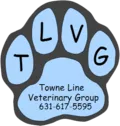How do we decide what services to offer to your pet?
Our philosophy is practice the best medicine and offer only needed services. We give vaccines the that are necessary. After listening to your pets risk of exposure, we tailor a protocol unique to your pets lifestyle. We do not give every vaccine to every animal. Recent published studies have shown that duration of immunity for some vaccines, like distemper and rabies for dogs, is now considered to be three years. So when appropriate, we give vaccines less frequently. It’s better for your pet, and better for your pocketbook.
A common appointment at our clinic is where a prior veterinarian had recommended a dentistry or a growth removal and the client just didn’t feel right about it. In many cases, the pet truly didn’t need the procedure, either because the dental tartar was very mild, or the growth was easily determined in our office to be a benign fatty tumor that did not require surgical intervention. The client is saved an unnecessary expense, and more importantly, the animal is saved unnecessary anesthesia.
We realize the power we have over clients in how much you care for your pet. We do not exploit this trust and only recommend services that we would provide to our own animals.
Every recommendation we make is explained so that you understand why it’s necessary and potential risks are discussed. The final decision lies with you, the owner. We offer alternative treatment plans when the “best medicine” is not practical for financial reasons.
How do we decide how to price our services?
I’ll start this discussion by stating a fact about our practice. We are absolutely sympathetic to the financial sacrifice involved in taking excellent care of your pet. There are practices that view each appointment as a financial transaction where a primary goal is to get the client to part with as much of their hard-earned dollars as possible. We do not practice that way. We see each pet as our own. It is what’s best for your pet that guides our recommendations. One visit to our practice will demonstrate that this is not just a cliche.
It is also important to note that when we quote a price, that price will be inclusive of any ancillary items that go along. You will not see line items for “medical waste” or “blood drawing” that are simple fees that other clinics use so that they can quote lower prices to get you in the door.
One of our biggest challenges is to make clients realize the variation in levels of care and equipment amongst the many veterinary practices you have to choose from. Whereas a box of heartworm medication or flea prevention is the same from one practice to another, and therefore must be priced competitively, the same cannot be said for the level of care given. This is not to say that our prices are not competitive, it is more to point out that when comparing different veterinary clinics, price is a very poor indicator of value.
I offer the following example to demonstrate common differences in levels of practices. You call clinic 1 and ask the cost of having your dog spayed and are quoted an amount that is significantly less than clinic 2. Thinking that the level of care must be very similar you choose to have your pet’s procedure done at the less expensive clinic.
Clinic 1
- No pre-operative blood testing is done, or if it is done, it is an optional item at increased cost.
- Pets are anesthetized using less expensive agents that have higher risk involved.
- The animal is not being monitored so that the heart rate, respiratory rate and oxygenation of the pet’s blood may remain unknown.
- Unlicensed or improperly trained staff assist the doctor, or worse, the doctor is alone in the room during the procedure.
- No intravenous catheter is placed, no fluids are given during surgery, i.e. if there is an anesthetic complication, the proper protocols are not in place.
- No pre-operative tranquilizers or post operative pain medications are given, or if they are, they are charged as a separate line item.
- The same surgical instruments may be used on multiple procedures before being sterilized.
- If it’s a low cost clinic, upwards of twenty animals may be done consecutively increasing the risk of complication, contamination or unnoticed complications.
Clinic 2
- Each animal has pre-operative blood testing done.
- A premedication is given so that the lowest effective doses of anesthesia can be used.
- The safest anesthesia medications are used.
- Every anesthetized pet has an intravenous catheter in place so that if emergency drugs are needed they can be given immediately without complication.
- All staff is licensed and/or has many years of experience.
- Vital signs (heart rate, blood oxygenation, blood pressure and respiratory rate) are monitored with both equipment and the technicians skill.
- A new sterile surgical pack is used on each surgery.
- All animals receive both pre-operative and post operative pain medications.
- Each animal is watched closely to be sure any complications are noticed and addressed.
This example is not as extreme as it seems. These are common differences between local practices. It is impossible to practice at the level of Clinic 2 at the price point of Clinic 1. It’s also impossible or impractical for a receptionist to articulate these differences when clients ask why prices differ. That’s not to say that your pet will necessarily have a bad outcome at Clinic 1. In the overwhelming majority of cases all goes fine. But I do think that clients deserve to be making a fully informed decision.
We do not make pre-anesthesia blood testing or post operative pain medication optional at our hospital. We would not deny either to our own pets, and do not feel comfortable denying them to yours. Be assured, your pet will notice the difference.
